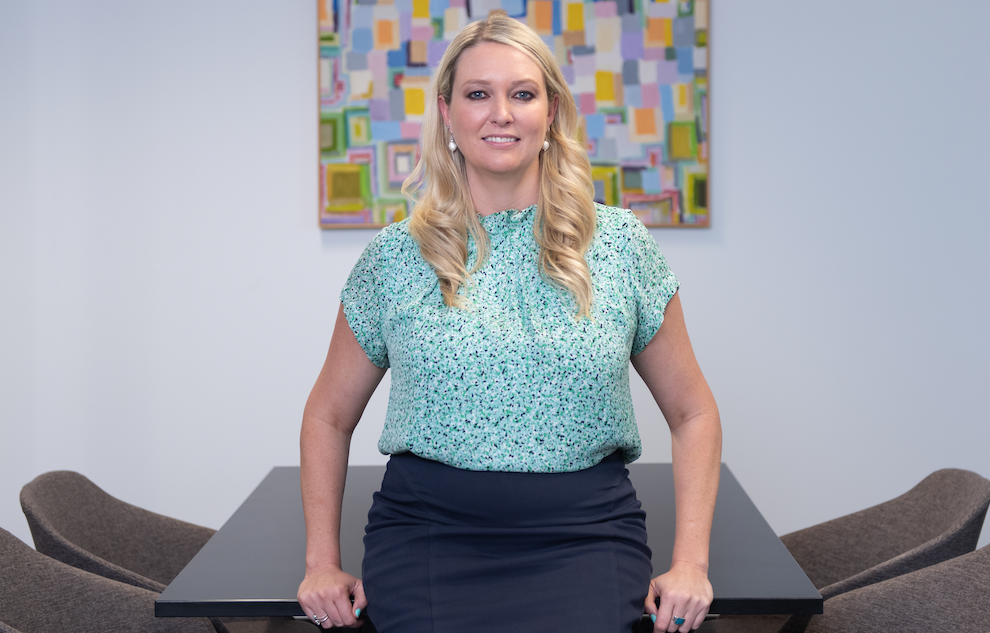
HEELS clatter on to the hard floors, the sound booming down the corridors of the office of territory political power.
The woman walking nearly breaks stride into a strut, but the click-clacking of every step addresses a gender imbalance felt in Canberra that failed to emanate from Capital Hill.
The turbulent weeks in Parliament House were metaphorically a world away from the surrounds of the Legislative Assembly of the ACT.
The chamber on London Circuit is a swathe of women outnumbering men.
The 14 elected females filling the 25 seats on the floor prove a dichotomy from an old-world order, but a fair reflection of the city’s progressive society.
In response to the questionable behaviour of federal government members and a former senior adviser, allegiances between the three ACT parties are for once cast aside in favour of unifying towards a women’s network line.
Marisa Paterson, a fresh face to the unicameral legislature after claiming a first seat in Murrumbidgee for Labor at last October’s elections, is already one of the formative forces and authoritative voices behind female pollies and staffers.
“As a new member to the Assembly, what’s interesting is probably what the problem at Parliament House is: how offices are set up. They work within their party and work within their office, so you can become very isolated,” she says.
“I don’t know what goes on in those Liberal Party offices and the staff don’t talk about it, but I think that is the danger and probably the difference of the parliament as opposed to a normal workplace.
“I think if that is really explicit and people understand, and recognise where the vulnerabilities are, that’s an important first step.”
The latest alleged actions of a non-consensual sexual nature, down dark halls and inside the corners of hidden offices at Parliament House, really are nothing new. But victims and survivors at least are standing up.
So did Labor’s newest addition to its 10 seats in the coalition government.
Before giving up a piece of privacy to be publicly answerable to the ACT taxpayers, she was a victim of sexual harassment, stalking and bullying from a prominent NZ university academic.
The anthropological doctor of philosophy claimed her pleas were ignored after lodging a complaint to ANU amid denials from the accused.
But only when Marisa stood upright from her new seat, bravely reaching deep into her soul to pull out a first political speech detailing her pain and suffering that action was taken against the perpetrator.
So when ex-Defence staffer Brittany Higgins, the first of a growing litany of accusers that left parliament in tears, went public in front of that very same Australian bastion of democracy of where the alleged crimes occurred, the women’s network line had a cause.
“That’s really the thing that I think we need to transition from because at the moment, it’s very much the impetus is on victims to come forward and to go to their employer and say, ‘This is what’s happening to me’, when actually what we need to be doing is looking at creating safe work environments,” Marisa says.
“It actually should be on the employer to ensure that their employees are safe at work and not experiencing these behaviours, rather than waiting until you get into some awful situation.
“And what I mean, out of my own personal experience, what comes of it is significant reputational damage to the organisation.
“So you look at Parliament House, it’s just in tatters at the moment. How is this a good thing for their kind of image? It doesn’t work, it is not a good model to cover this stuff up, to ignore it and to not prosecute perpetrators.”
The network is more a support group for female staffers that nearly fill every office in the Assembly than it is for their female MLA employers.
The purpose is to meet and discuss issues relevant to women, akin to their health and safety in the building and workplace respect to name a few.
The informal conversations not only cross party lines but are conducted in privacy, never to leave the room.
Every four years a new members’ behavioural code of conduct is reviewed, but the 10th Assembly in ACT political history is expected to implement amendments relating to managing sexual indiscretions better.
And unlike any of Labor, Liberals or Greens battling for enough numbers, the women’s network has the only majority of sorts in the chamber.
“I think that will take the power and balance out of the discussion because what you know has really come out of Parliament House is that you have a really unequal power structure, and that’s why this stuff is able to happen,” Marisa says.
“That’s really a lot of what’s behind sexual harassment and why people get away with it.”
Who can be trusted?
In a world of spin and confusion, there’s never been a more important time to support independent journalism in Canberra.
If you trust our work online and want to enforce the power of independent voices, I invite you to make a small contribution.
Every dollar of support is invested back into our journalism to help keep citynews.com.au strong and free.
Thank you,
Ian Meikle, editor








Leave a Reply